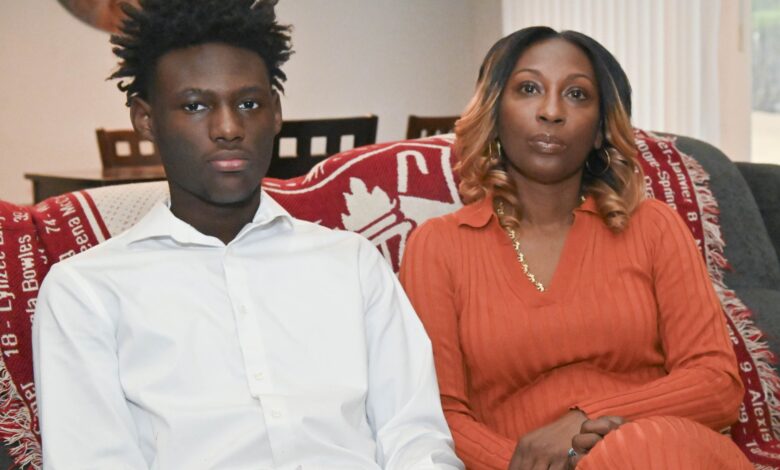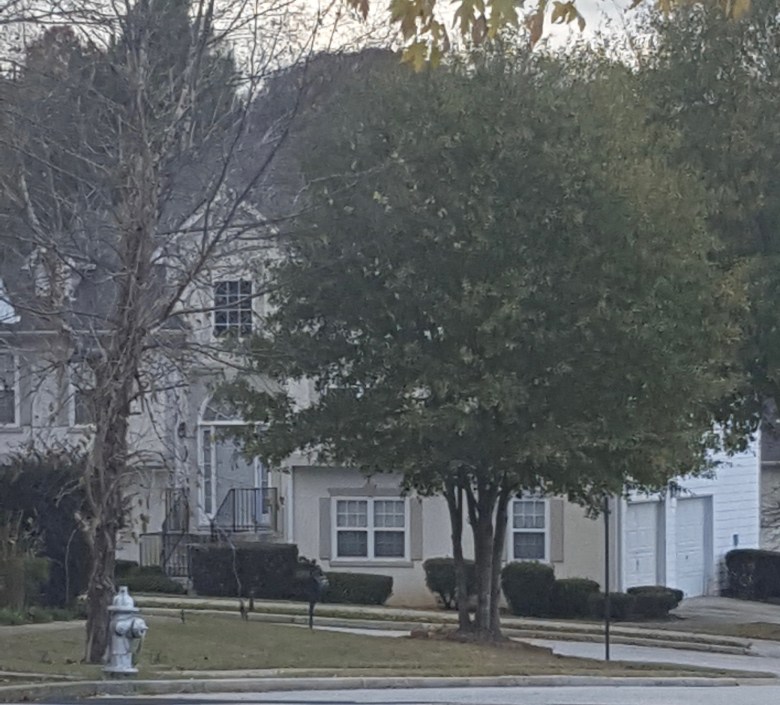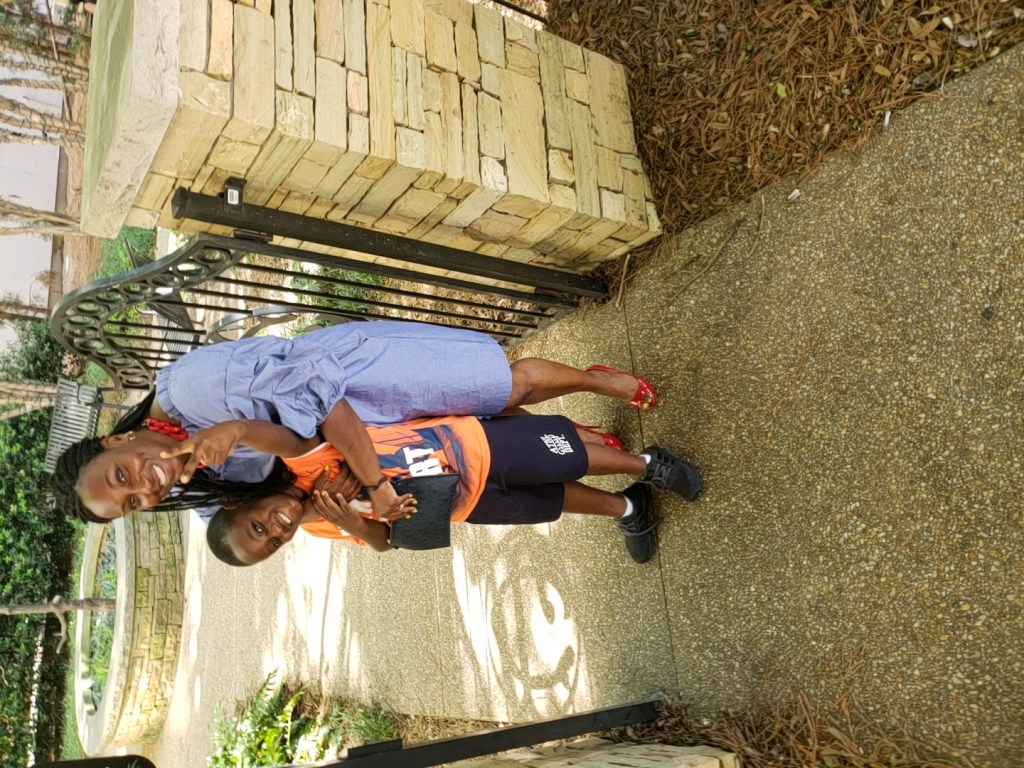Atlanta family seeks accountability in FBI house raid incident

Imagine one morning you’re jolted from bed and awoken by a flashbang grenade exploding in your living room. One early morning in 2017, this was the reality for Atlanta family Trina Martin, her son Gabe, and her then partner, Toi Cliatt.
Fearing the home was being robbed, Cliatt pulled Trina into the bedroom closet and reached for his legally owned shotgun. Just as he was about to grab it, an FBI agent barged in, threw him to the ground, and began interrogating him and Trina. All the while, Gabe (seven years old at the time of the incident) was separated from his mother as officers stormed into his bedroom with guns drawn.
When Cliatt told the agents his address, it dawned on them they had raided the wrong house. The FBI had a warrant, however, for a home with a different address number on a different street.
After realizing their mistake, the FBI agents quickly left and raided the correct house. Afterward, one of the agents returned, apologized, and gave Cliatt his supervisor’s business card to discuss paying for the damage.
He then called the number on the card, but it quickly became clear the federal government did not plan to help. Also, despite the trauma inflicted on the innocent family, the government refused to cover the costs.
With no other way to recover for these injuries, Trina filed a lawsuit under the Federal Torts Claims Act (FTCA) and pursued more aid from the Institute for Justice (IJ). This, in turn, made the IJ ask the U.S. Supreme Court to revive their lawsuit for accountability, which the lower courts have thrown out.
After nearly eight years, the U.S. Supreme Court recently agreed to hear their case to reconsider whether their suit under FTCA should be allowed to proceed. The Atlanta Voice spoke with Trina and Gabe (now 14 years old) to discuss the situation, the importance of accountability, fighting back, and trauma.

The Atlanta Voice: Do you still have PTSD from the FBI house raid in 2017?
Trina Martin: Yes. I felt like your home is your sanctuary, your safety net. I don’t feel that anymore. Anything can happen. I felt like at one point in time when I’m in my own home, I’m safe and if something were to happen and I contacted local authorities, I’m safe. However, now I have no faith in law enforcement. I keep surveillance on my home to this day before I go to bed throughout the night. I wake up in the morning, I’m constantly checking my windows, checking to make sure my doors are locked, and walking the perimeters of my house. I don’t feel safe, I don’t like crowds or being in a room full of people, or an event, festivals, or anything. When I go into an establishment, I’m looking at all exit points where there’s an easy escape, just in case something happens, I’m always on high alert and I was never like that before. It’s paranoia.
Gabe Martin: Back then, I wanted to be a police officer around that age, but after the incident, I didn’t want to become one because I thought they were used for the wrong things. I always ask my mom whenever a situation happens do we have to call the police, or what’s going to happen next when the police get here? I don’t really feel safe around officers, I’m scared of guns, and I have trauma from when they came into my room and pointed automatic rifles in my face. It’s scary to me because I could have died that night.
TM: It took a lot of adjustment and therapy to try to navigate through life again. We’ve been trying to find ways to live all over again, because at that moment, our lives were abruptly interrupted. We were left to figure out a way to navigate through life all over again while still doing our everyday, normal daily routines. I was out of work for a long time because of it. I was in a meeting one day and I freaked out in front of half the company. I couldn’t go back to work, so something as simple as working is just snatched away from you.

AV: When you realized, the federal government wasn’t going to offer any compensation or aid after the raid, how did that feel?
TM: When they dismissed our case, it was a blow to the heart. There are no words to even express Isaiah because it was a low blow. I’m a veteran and I’ve served and protected this country; you expect the same thing. I expected to be protected and receive a resolution. I expect for the government to hold themselves accountable. This was complete negligence, and for them to sweep it underneath the rug and act as if we’re not victims, it’s a low blow.
AV: Have you all heard anything from the FBI about an apology?
TM: The only time we received an apology was that morning when they realized they were at the wrong address. It was like they became human and snapped back to reality. It was like they were robots until after the realization hit them. It’s been a lot of not taking accountability and sweeping underneath the rug as if nothing ever happened. There has not been an apology since that night.

AV: Do you all feel safer where you live now?
TM: I don’t feel safe anywhere I go. We always must check our surroundings and make sure places are secured, but even when it’s secured, or when I thought it was secure at our old house, they just knocked down the door and all the security went with it.
GB: I don’t feel safer, to be honest. It’s like a replay every day. I remember hiding underneath my blanket because I was terrified. I think about the situation a lot because my life could’ve been taken, like I wouldn’t be here talking to you right now. I will never forget the automatic rifles pointed in my face and all the smoke that was in the house, all the flash bangs, it’s a constant replay.
AV: With the U.S. Supreme Court willing to hear your case, what do you hope to gain?
TM: I hope to get a favorable outcome out of this and hope to be awarded whatever the Supreme Court or justice system feels as though the highest award should be. We’re seeking restitution because it’s not just in 2017, the moment it happened, this is ongoing. My son was seven years old at that time and you never know when there’s going to be a trigger point. He has his whole life ahead of him, and I want an outcome that will give him some type of peace, feeling heard, and feel like justice was made. I’m looking for the Supreme Court to make the right decision in our favor and we’re going to be grateful regardless. I feel incredibly grateful and honored they are willing to hear our case because it’s a major milestone, not just for me, but for others who may have been affected by a related situation. I see this as an opportunity for justice and positive change and I remain hopeful for a favorable outcome.
Additionally, Trina says this wasn’t a racially motivated incident nor discriminatory, but complete negligence.
“Sometimes, people mix it up and make it racial or discriminatory, but this wasn’t racially motivated. The ball was dropped and this was an operation that was executed poorly,” she said. “They had months or years to dot their I’s and cross their T’s, it’s negligence which gives people like me the opportunity to fight for our rights.”
She also says she prays the outcome of this case is favorable on her family’s behalf.
To readers and anyone out there listening, Trina says she would like to thank all the prayer warriors, supporters, and everyone who has stood near her family.
“It’s been a long, exhausting, and draining journey to be told no several times, and we finally have a yes,” she said. “I would like to tell anyone who may feel as though their justice was taken away from them, don’t stop at the first no, keep fighting because at the end of the rainbow, something will always shine.”
The exact hearing date has not been chosen yet, but it will be sometime in April, according to Trina.



